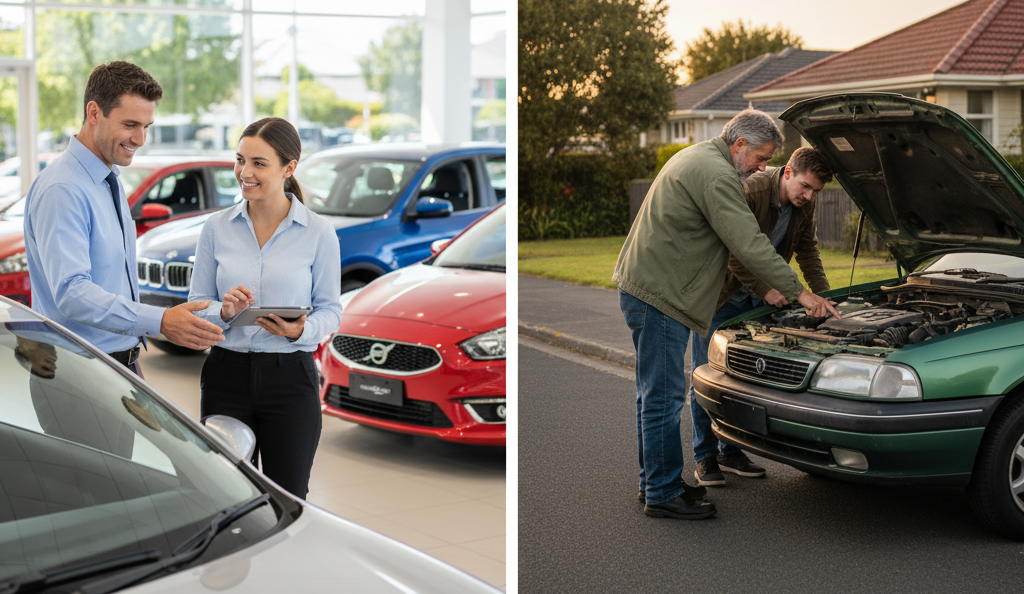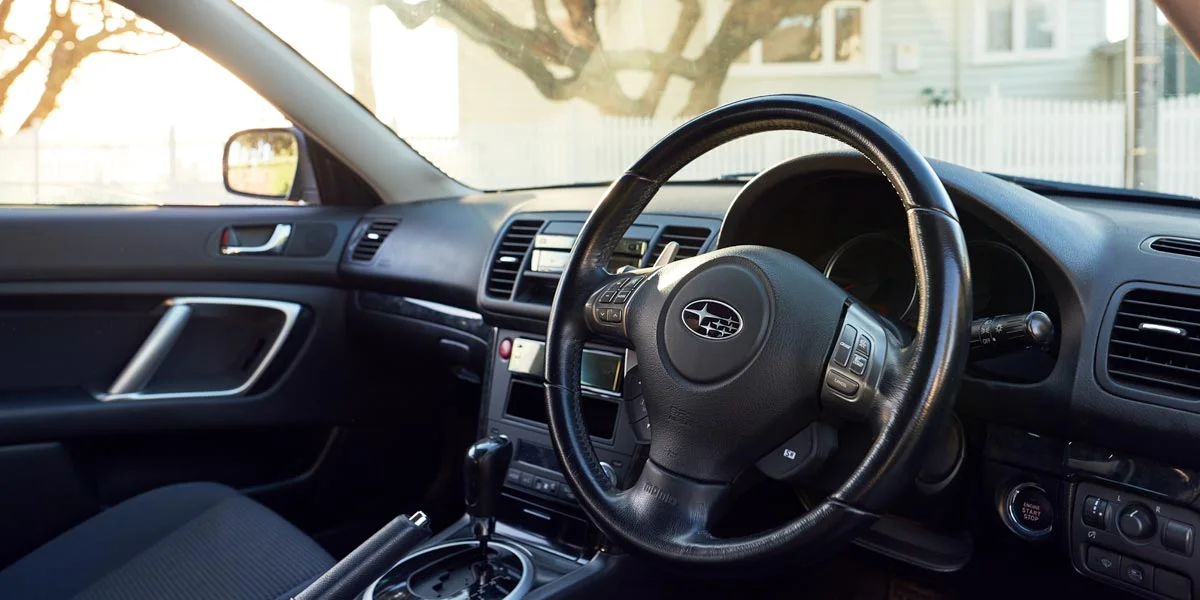Buying guide
Buying From a Car Dealer vs. Private Seller in NZ: The Pros & Cons
Should you head to a car dealership or browse private sales? The right choice depends on what you're looking for.

Buying from a Car Dealer
The Good Stuff:
The Not-So-Good Stuff:
Our Advice for Buying from a Dealer:
Buying from a Private Seller
The Good Stuff:
The Not-So-Good Stuff:
Our Advice for Buying Privately:
The Nitty-Gritty: Top Tips for All Buyers
Before you even start looking:
Getting the paperwork sorted:
The Bottom Line
Author
Other articles you might like




